Charles E W Bean, Diaries, AWM38 3DRL 606/68/1 - December 1916 - January 1917 - Part 3
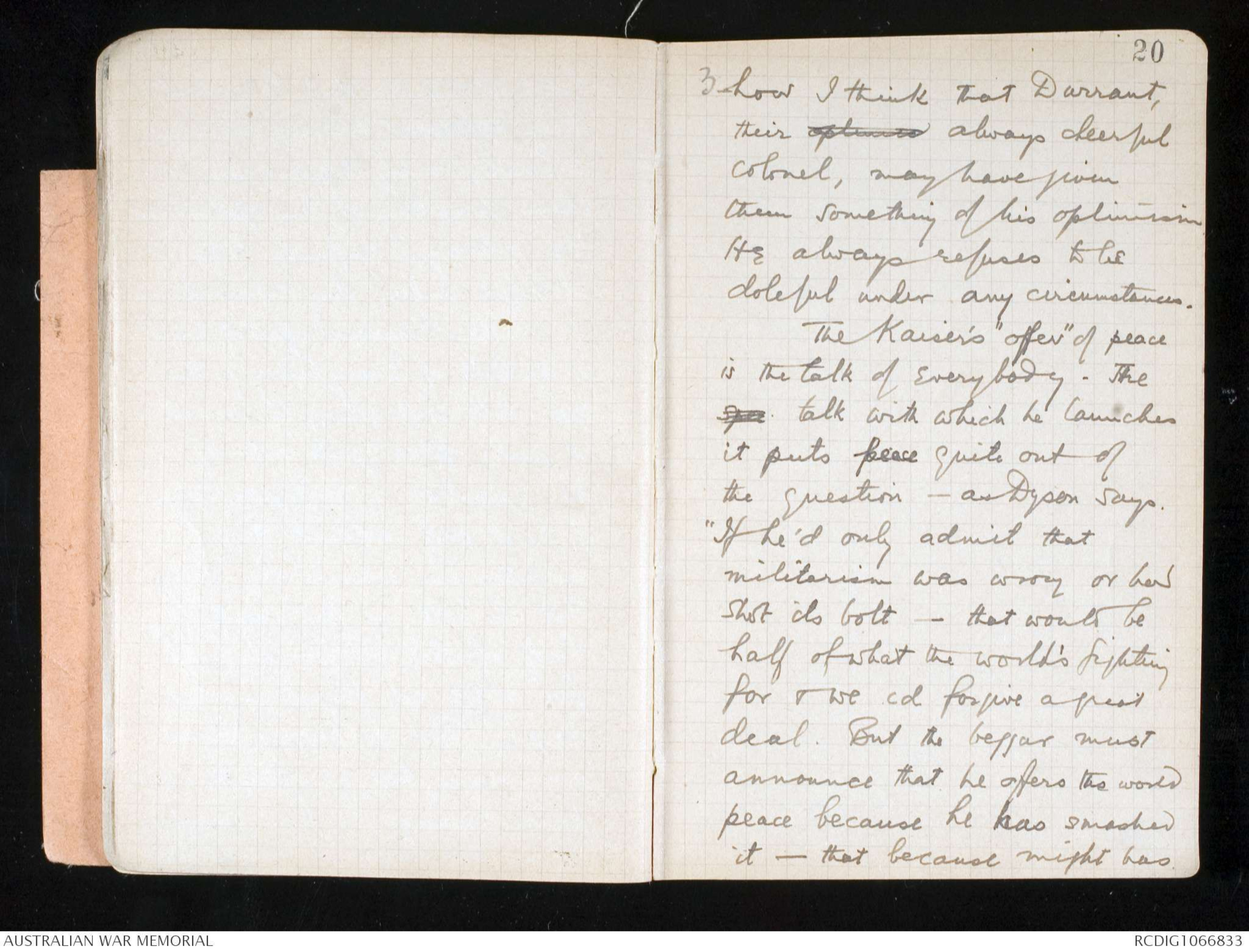
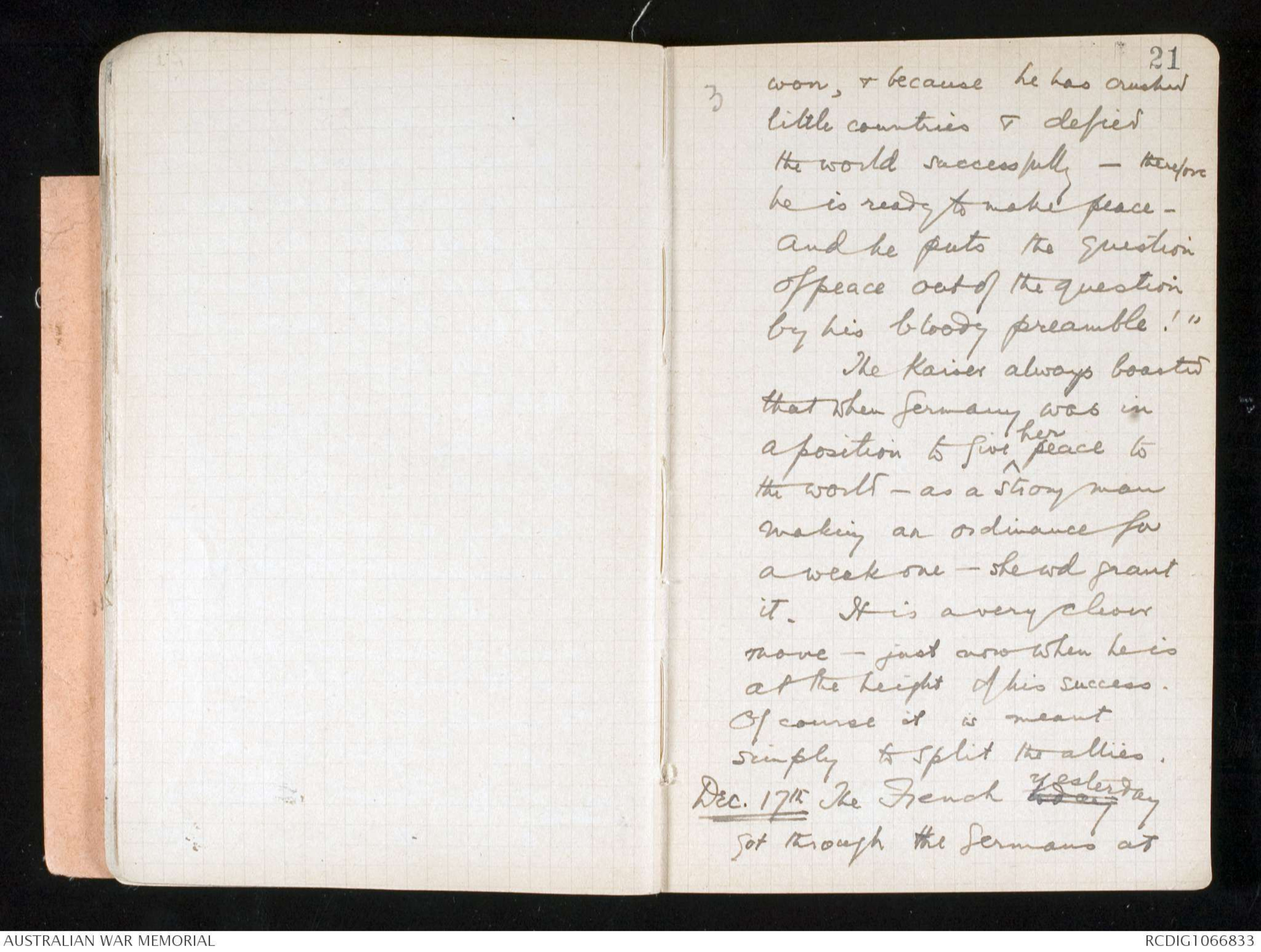
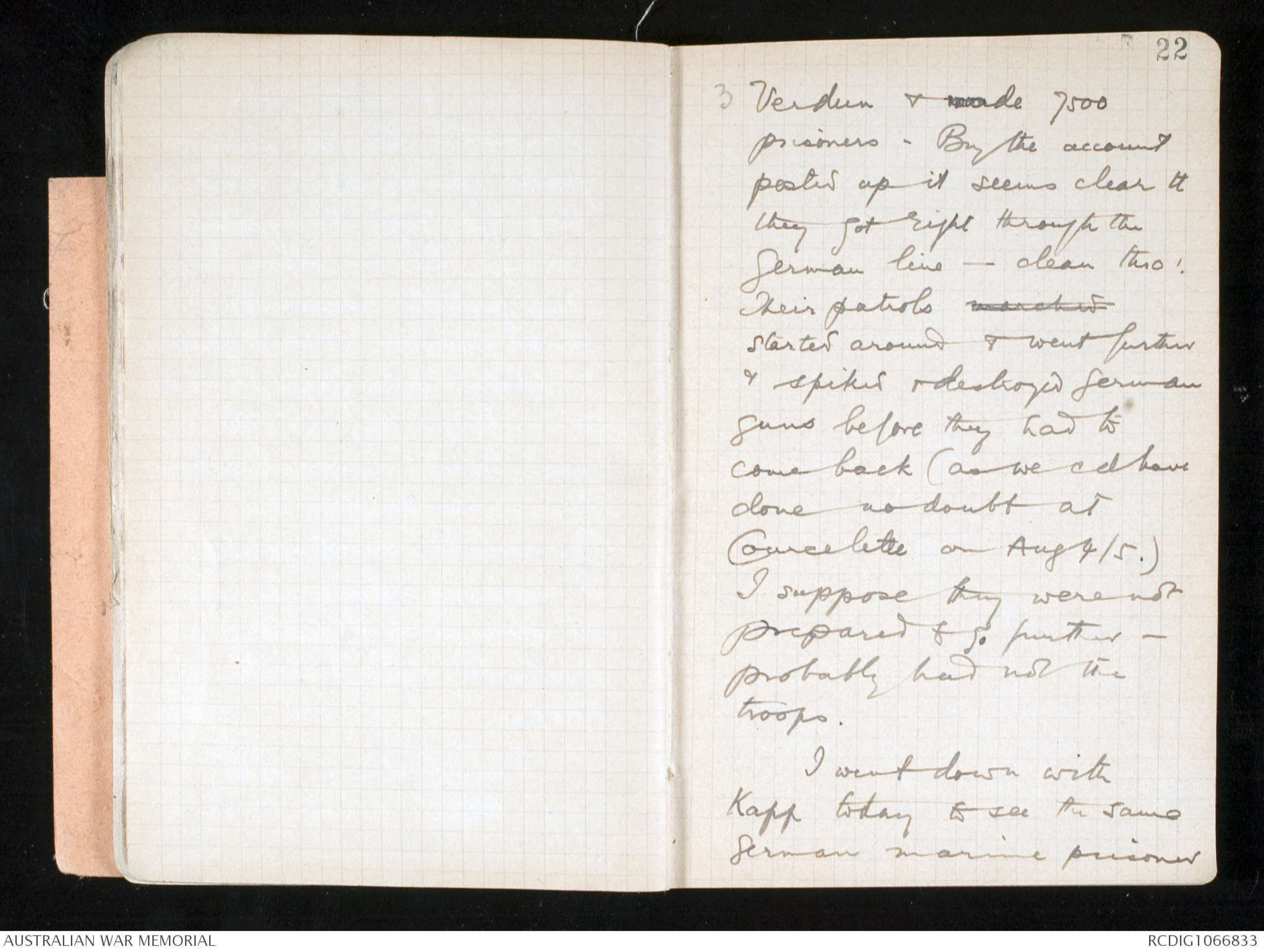
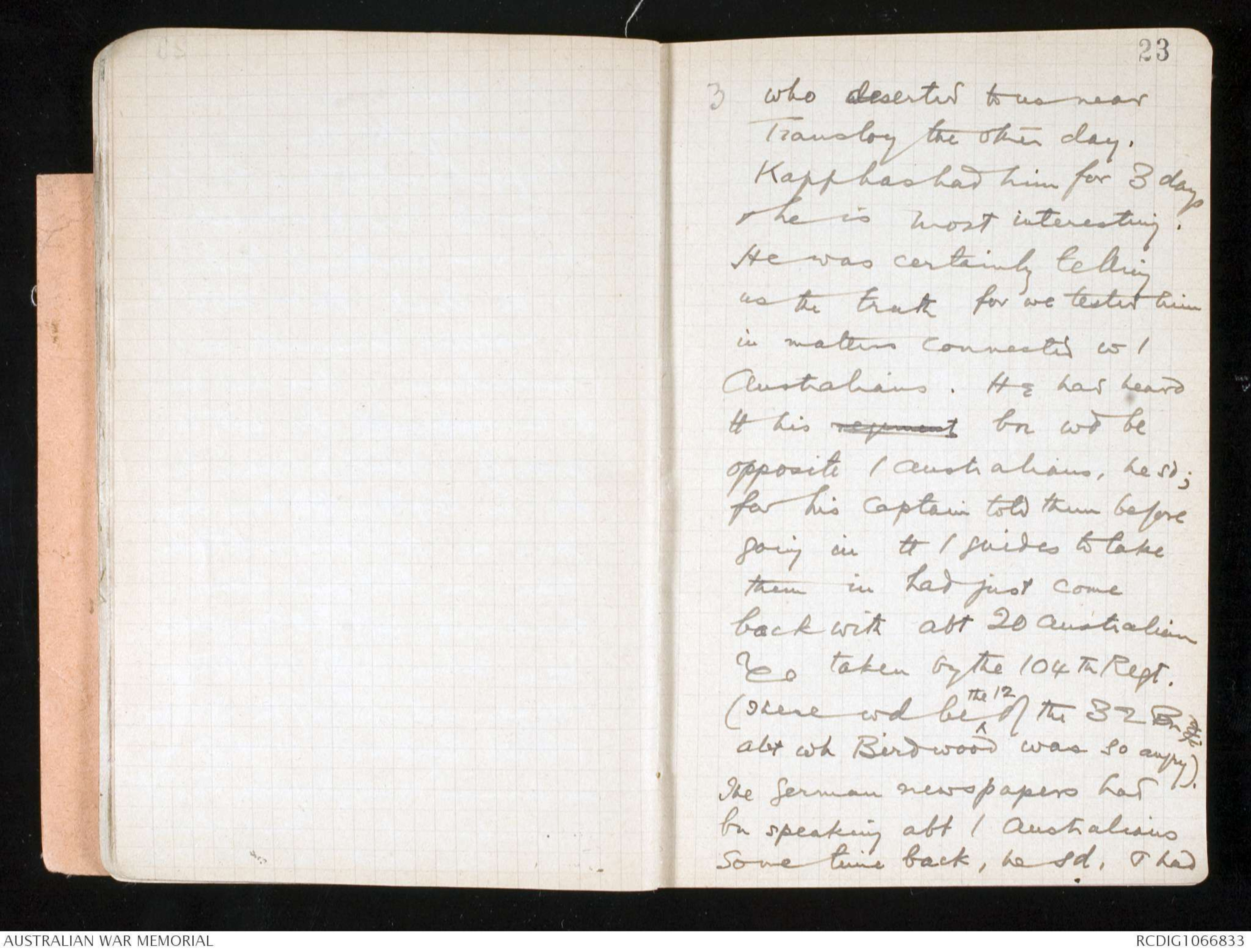

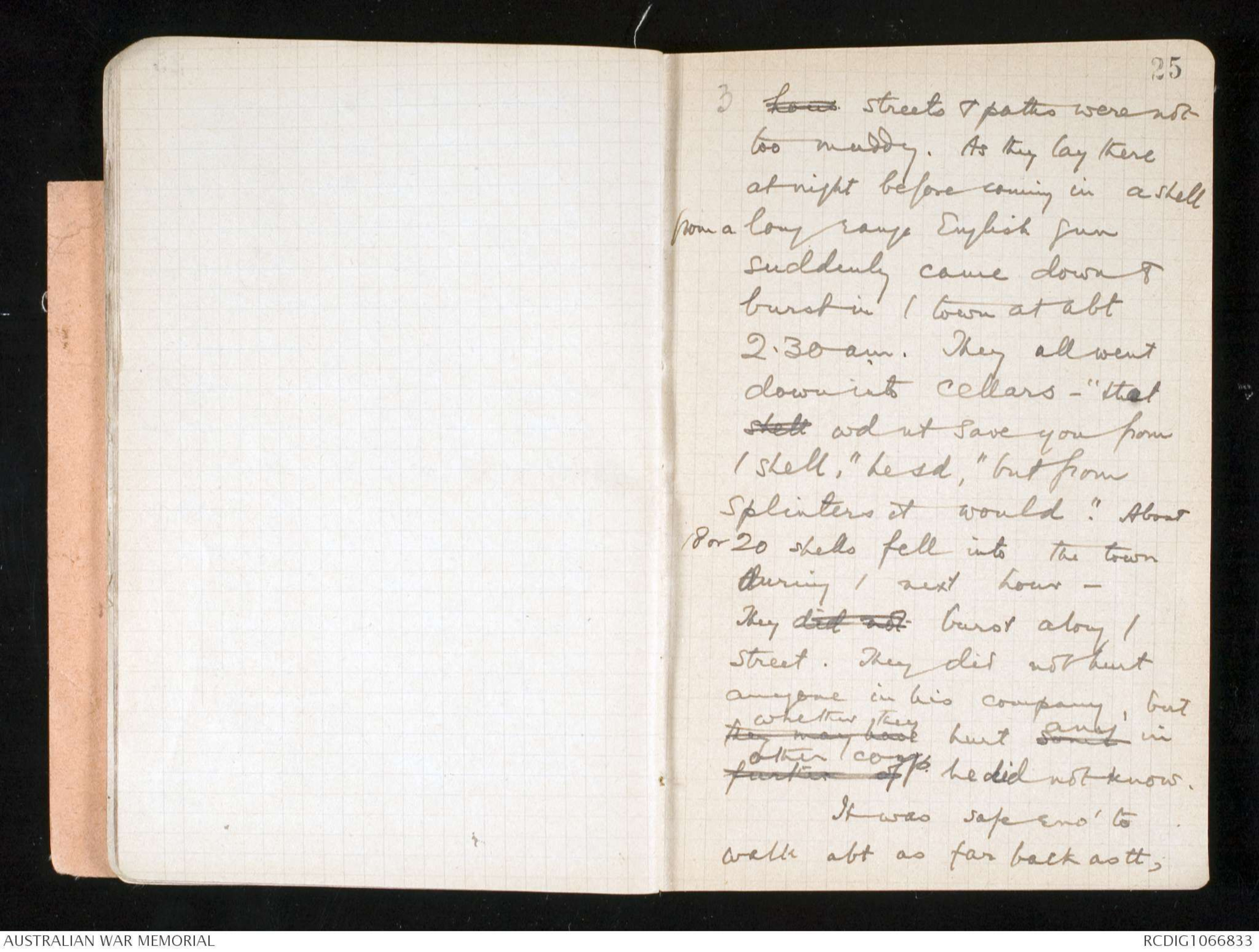
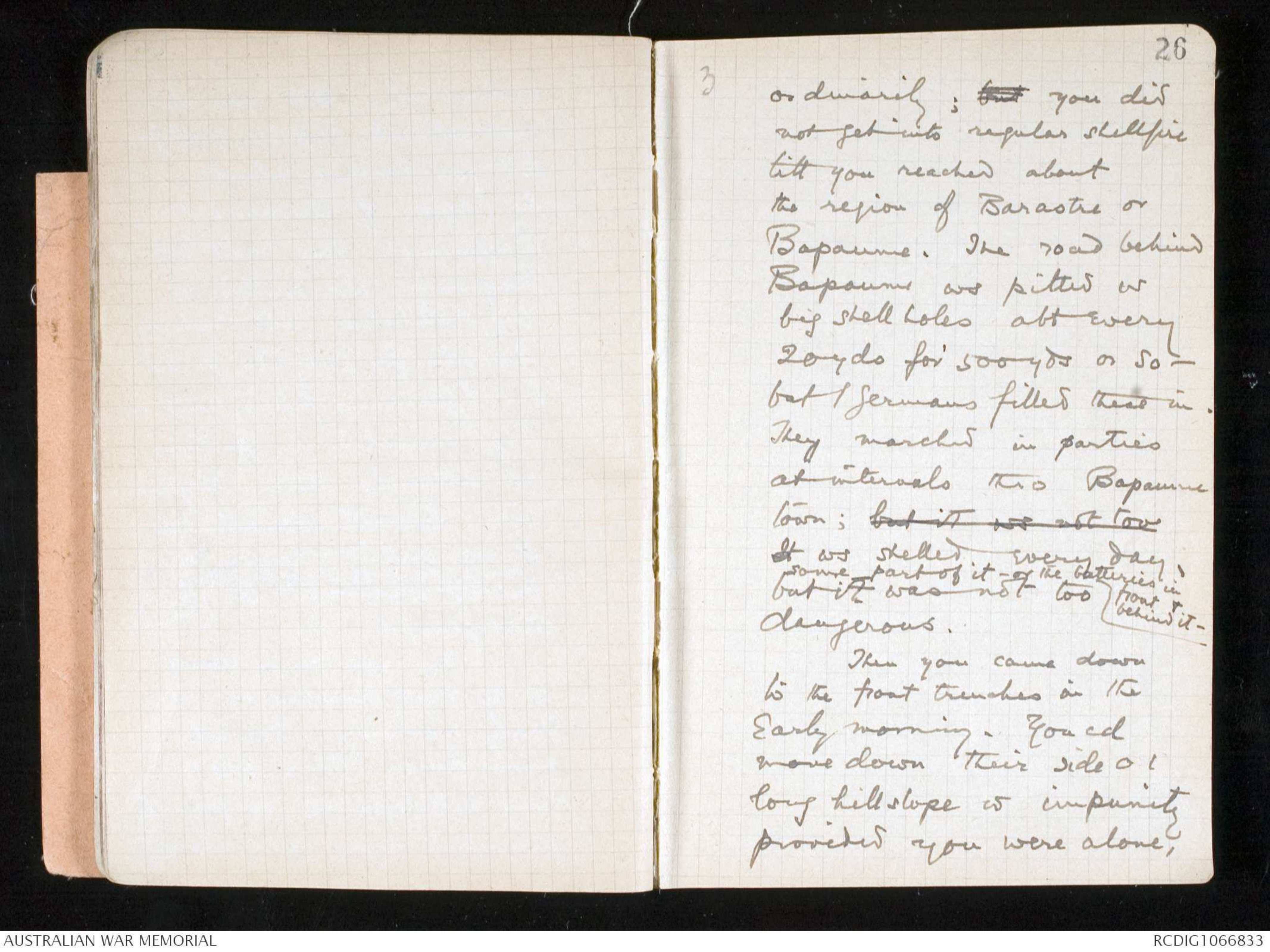
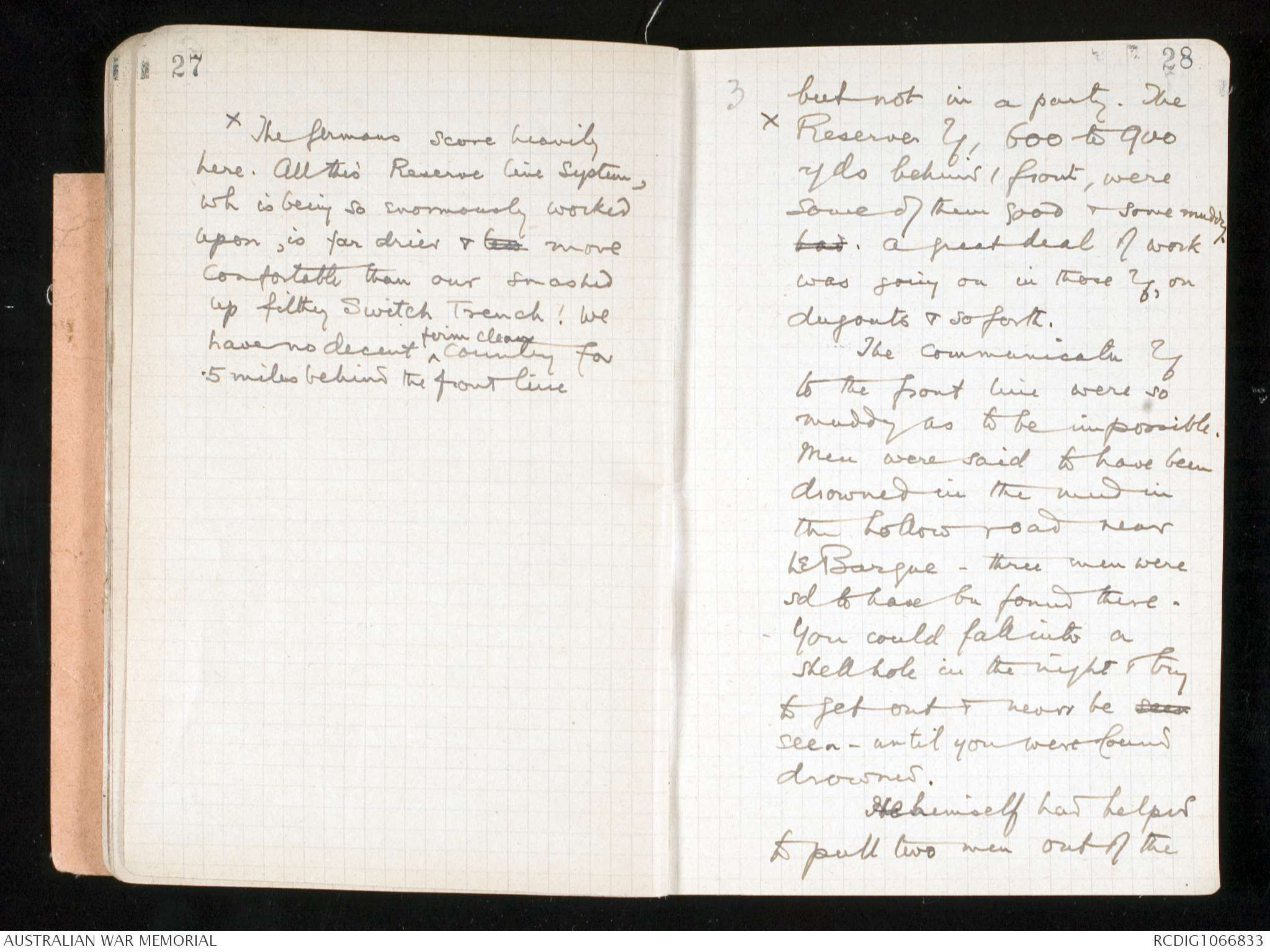
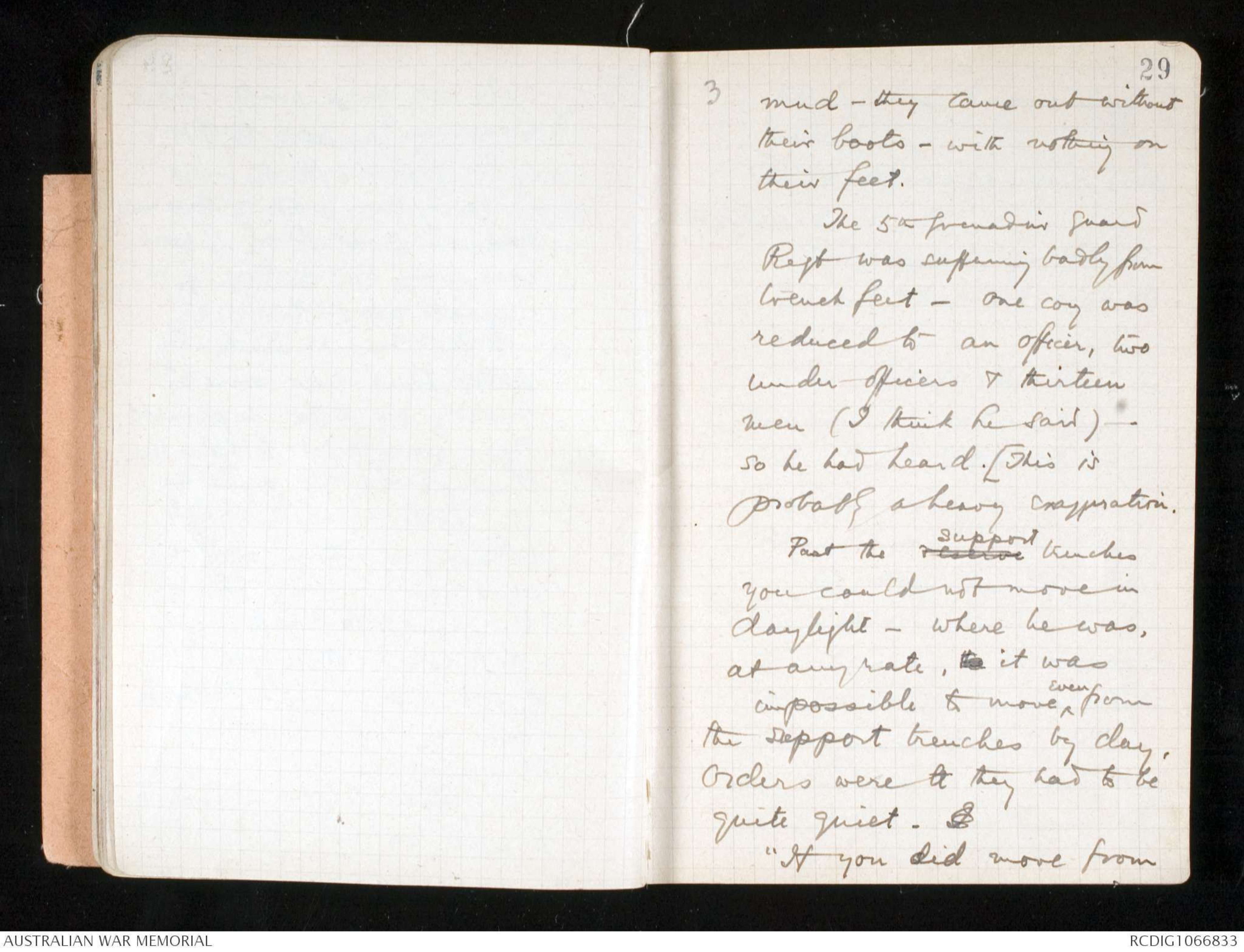
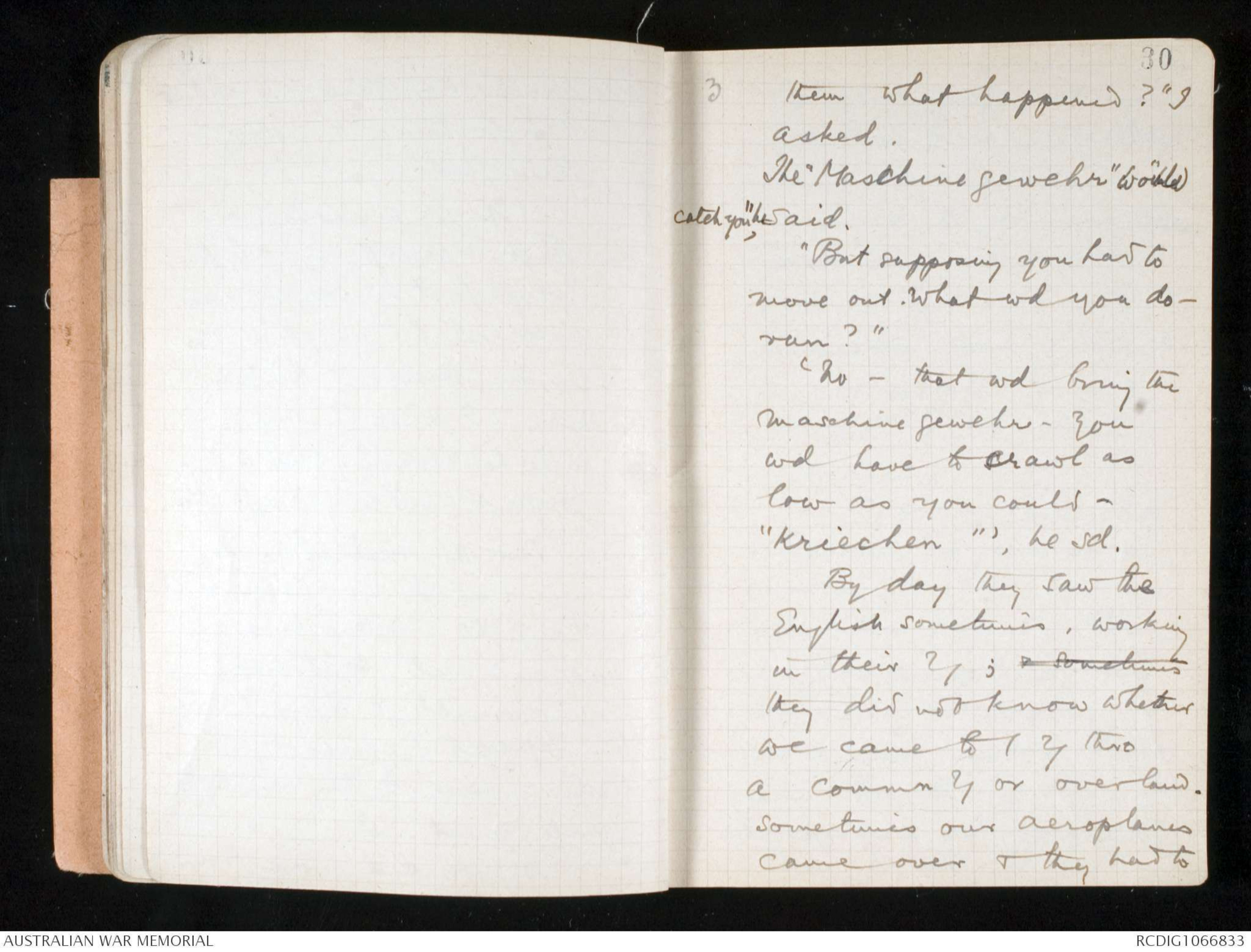
3 20
how I think that Durrant,
their optimis always cheerful
colonel, may have given
them something of his optimism.
He always refuses to be
doleful under any circumstances.
The Kaiser's "offer" of peace
is the talk of everybody. The spee talk with which he launches
it puts peace quite out of
the question - as Dyson says.
"If he'd only admit that
militarism was wrong or had
shot its bolt - that would be
half of what the world's fighting
for & we cd forgive a great
deal. But the beggar must
announce that he offers the world
peace because he has smashed
it - that because might has
3 21
won, & because he has crushed
little countries & defied
the world successfully - therefore
he is ready to make peace -
and he puts the question
of peace out of the question
by his bloody preamble!"
The Kaiser always boasted
that when Germany was in
a position to give her peace to
the world - as a strong man
making an ordinance for
a weak one - she wd grant
it. It is a very clever
move - just now when he is
at the height of his success.
Of course it is meant
simply to split the allies.
Dec. 17th The French today yesterday
got through the Germans at
3 22
Verdun & made 7500
prisoners. By the account
posted up it seems clear tt
they got right through the
German line - clean thro’.
Their patrols marched
started around & went further
& spiked & destroyed German
guns before they had to
come back (as we cd have
done no doubt at
Courcelette on Aug 4/5.)
I suppose they were not
prepared to go further
- probably had not the
troops.
I went down with
Kapp today to see the same
German marine prisoner
3 23
who deserted to us near
Transloy the other day.
Kapp has had him for 3 days
& he is most interesting.
He was certainly telling
us the truth for we tested him
in matters connected w /
Australians. He had heard
tt his regiment bn wd be
opposite / Australians, he sd;
for his Captain told them before
going in tt / guides to take
them in had just come
back with abt 20 Australian
prisoners taken by the 104th Regt.
(There wd be the 12 of the 32 Bn )
abt wh Birdwood was so angry).
The German newspapers had
bn speaking abt / Australians
some time back, he sd, & had
3 24
remarked tt they were
"dumm" to come in & fight
the Germans as they had no
quarrel w them. (This ws /
comment on our Referendum
& after November 5th).
The prisoner, told me who ws lying in a bed with in
the Casualty Clearing Stn, with
several sick men from the German
prisoners of war Coy sitting
in / dark in front of a
brazier. No guard of any
sort ws put over them.
He told Kapp & me tt
his rest billet was in Bertincourt
- about 5 hrs march from /
trenches. The country ws quite
pleasant abt there, & the
3 25hous street & paths were not
too muddy. As they lay there
at night before coming in a shell
from a long range English gun
suddenly came down &
burst in / town at abt
2.30 a.m. They all went
down into cellars - "that shell wd nt save you from
/ shell, " he sd, "but from
splinters it would." About
18 or 20 shells fell into the town
during / next hour -
They did not burst along /
street. They did not hurt
anyone in his company, but
whether they they may have hurt some any in further off other coys he did not know.
It was safer eno' to
walk abt as far back at tt,
3 26
ordinarily; but you did
not get into regular shellfire
till you reached about
the region of Barastre or
Bapaume. The road behind
Bapaume ws pitted w
big shell holes abt every
20 yds. for 500 yds or so -
but / Germans filled these in.
They marched in parties
at intervals thro Bapaume
town; but it was not too
It ws shelled every day,
some part of it - of the batteries in front & behind it -
but it was not too
dangerous.
Then you came down
to the front trenches in the
early morning. You cd
move down their side o /
long hillslope w impunity
provided you were alone,
27
X The Germans score heavily
here. All this Reserve line system,
wh is being so enormously worked
upon, is far drier & less more
comfortable than our smashed
up filthy Switch Trench! We
have no decent firm clear country for
.5 miles behind the front line
3 28
but not in a party. The
X Reserve trenches, 600 to 900
yds behind / front, were
some of them good & some muddy, bad A great deal of work
was going on in those trenches, on
dugouts & so forth.
The communicatn trenches
to the front line were so
muddy as to be impossible.
Men were said to have been
drowned in the mud in
the hollow road near
Le Barque - three men were
sd to have been found there.
You could fall into a
shellhole in the night & try
to get out & never be seen
seen - until you were found
drowned.
He himself had helped
to pull two men out of the
3 29
mud - they came out without
their boots - with nothing on
their feet.
The 5th Grenadier Guard
Regt was suffering badly from
trench feet - one coy was
reduced to an officer, two
under officers & thirteen
men (I think he said) -
so he had heard. [This is
probably a heavy exaggeration.
Past the reserve support trenches
you could not move in
daylight - where he was,
at any rate, xxx it was
impossible to move even from
the support trenches by day.
Orders were tt they had to be
quite quiet. I
"If you did move from
3 30
them what happened?" I
asked.
The "Maschine Gewehr “ “would
catch you", he said.
"But supposing you had to
move out. What wd you do -
run?”
‘No - that wd bring the
Maschine Gewehr - you
wd have to crawl as
low as you could -
"Kriechen" ‘, he sd.
By day they saw the
English sometimes, working
in their trench; & sometimes
they did not know whether
we came to / trench thro
a commn trench or over land.
Sometimes our aeroplanes
came over & they had to
 Jacqueline Kennedy
Jacqueline KennedyThis transcription item is now locked to you for editing. To release the lock either Save your changes or Cancel.
This lock will be automatically released after 60 minutes of inactivity.